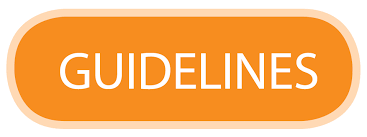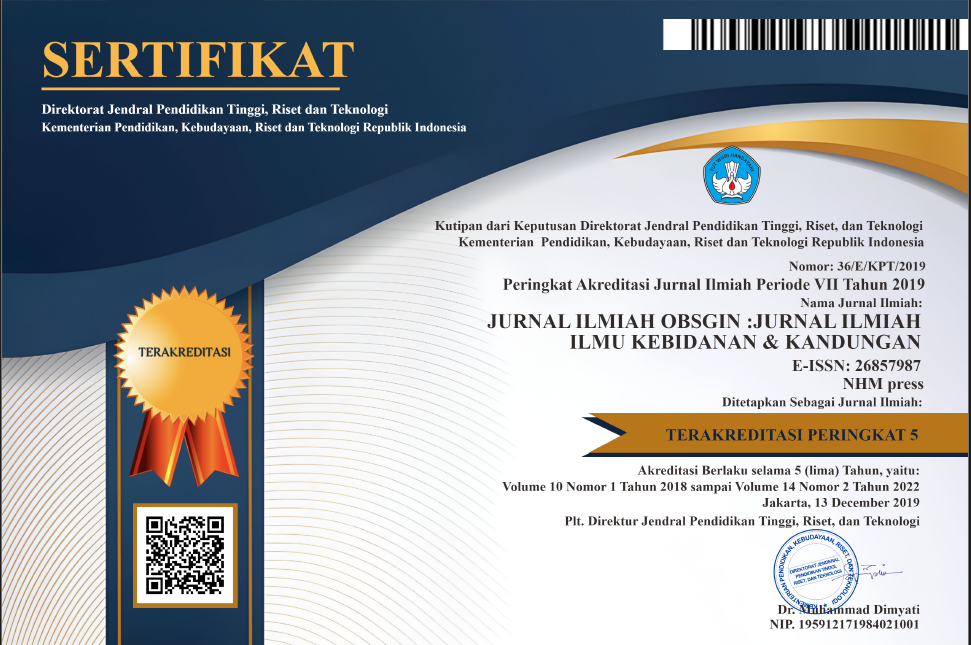ANALISIS KENAIKAN BERAT BADAN BALITA SELAMA PANDEMI COVID-19 DI PUSKESMAS SANOBA KABUPATEN NABIRE TAHUN 2022
Abstract
Toddlers are children aged 0-59 months, this period is characterized by a process of growth and development that is very rapid and is accompanied by changes that require nutrients in greater quantities with high quality. However, toddlers are a group that is vulnerable to nutrition and easily suffers from nutritional disorders due to a lack of the food they need. The social and economic crisis caused by the coronavirus pandemic has the potential to cause nearly seven million children to be stunted due to malnutrition, says the United Nations.
The purpose of this study is that researchers want to know "Analysis of Toddler Weight Gain During the Covid-19 Pandemic at the Sanoba Health Center, Nabire Regency in 2021".
The research method used in this research is descriptive analytic with a cross-sectional design. A sample of 80 people with the sampling technique is purposive sampling. Data analysis using chisquare. The results show that there is a significant relationship between maternal age and toddler weight gain with a value of P = 0.019 (<0.05), there is no significant relationship between maternal work history and toddler weight gain with a value of P = 0.365 (<0.05) , there is a significant relationship between mother's education and toddler's weight gain with a value of p = 0.021 (<0.05). Suggestion It is expected that the puskesmas will provide education about the importance of good nutrition for toddlers, as well as education about complementary food recipes for toddlers.
References
Andriani M, Bambang W (2014). Gizi dan Kesehatan Balita (Peranan Mikro Zinc pada pertumbuhan balita).Jakarta : Kencana
Amelia, F. (2020). Hubungan Pekerjaan Ibu, Jenis Kelamin, dan Pemberian Asi Eklusif Terhadap Kejadian Stunting Pada Balita 6-59 Bulan di Bangka Selatan. Jurnal Kesehatan Poltekkes Kemenkes Ri Pangkalpinang, 8(1), 1. https://doi.org/10.32922/jkp.v8i1.92
Ariani, A. (2017). Ilmu Gizi Dilengkapi dengan Standar Penilaian Status Gizi Dan Daftar Komposisi Bahan Makanan. Yogyakarta : Nuha Medika.
Hasandi. (2018). HUBUNGAN USIA IBU SAAT HAMIL DAN PEMBERIAN ASI EKSKLUSIF DENGAN KEJADIAN STUNTING PADA BALITA DI DUSUN CEMANGGAL, DESA MUNDING KABUPATEN SEMARANG. Skripsi : Universitas Ngudi Waluyo Semarang
Husnaniyah, D., Yulyanti, D., & Rudiansyah, R. (2020). Hubungan Tingkat Pendidikan Ibu dengan Kejadian Stunting. The Indonesian Journal of Health Science, 12(1), 57–64. https://doi.org/10.32528/ijhs.v12i1.4857
Kemenkes RI. 2011. Pedoman Manajemen Terpadu Balita Sakit. Jakarta : KemenkesRI(http://kesga.kemkes.go.id/images/pedoman/BUKU%20KIA%202019.pdf).
Kulsum, Sudaryati. (2015). Faktor-Faktor yang Memengaruhi Kenaikan Berat Badan Balita Penderita Gizi Kurang pada Keluarga Penerima dan Bukan Penerima Beras Jimpitan di Wilayah Kerja Puskesmas Kota Medan Tahun 2015. Thesis. Medan : USU
Notoatmodjo S (2012). Ilmu Kesehatan Masyarakat. Jakarta: Rineka Cipta.
Novitasary, M.D., Mayulu N & Kawengian S.E.S (2013). Hubungan antara aktifitas fisik dengan obesitas pada wanita usia subur peserta jamkesmas di Puskesmas Wawonasa Kecamatan Singkil Manado. Vol. 1 no 2 Juli 2013. Jurnal eBiomedik
Perserikatan Bangsa-Bangsa. (2020). Akibat pandemic virus corona terhadap kejadian Stunting. Geneva : PBB.
WHO. (2020). Word Health Report 2020. Geneva : WHO.











